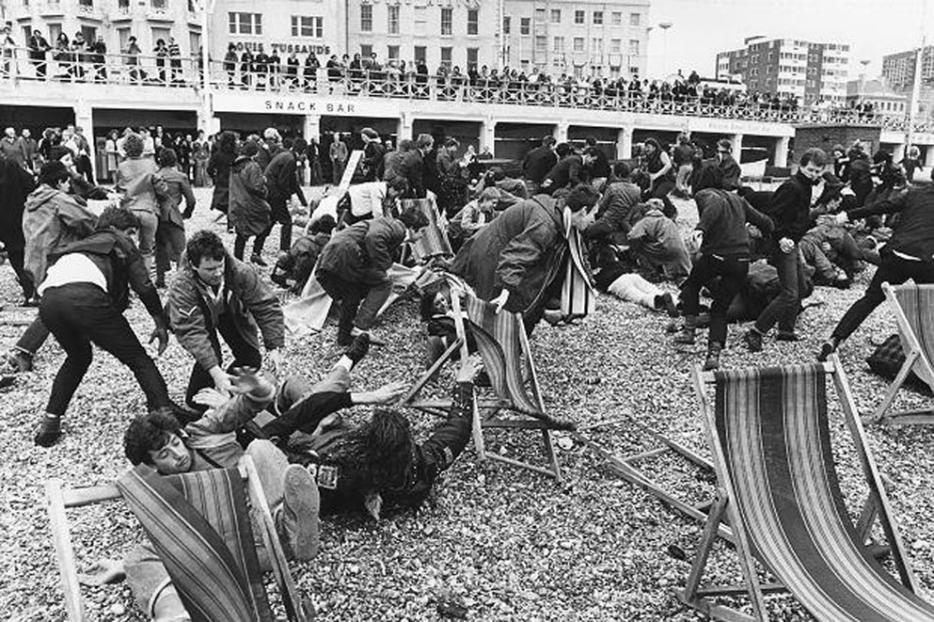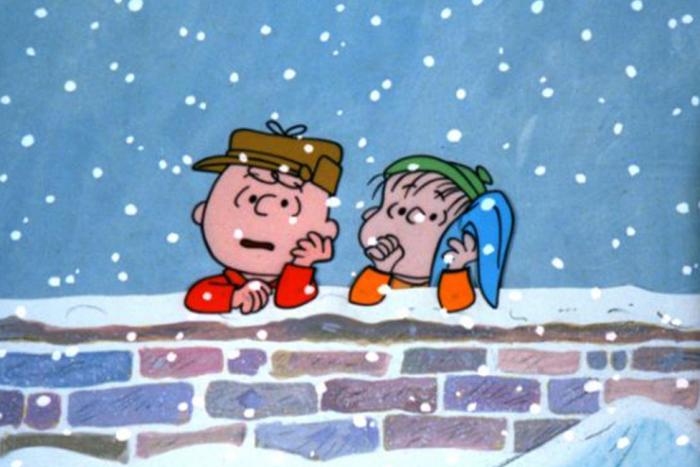I’m a Fairmount person. My sister is a St. Viateur person. The bagel debate rages whenever were picking up supplies for family brunch in Montreal.
“The line outside Fairmount was epic,” I say, dropping my brown paper bag on the table as my sister rolls her eyes. “You know who was lined up outside St. Viateur? Nobody.”
“A lot of people seem to like the Fairmount style,” our mum says peaceably.
“A lot of people are stupid,” my sister says.
In Australia, you’re either a Ford person or a Holden person. In a forthcoming study in the Journal of Business Research, Michael Ewing, Peter Wagstaff, and Irene Powell of Monash University examine online expressions of this brand rivalry between car companies. Brand “communities,” they note, are strong expressions of group identity: “a brand community has a shared consciousness, rituals and traditions and a sense of moral responsibility.” The researchers discuss earlier findings showing that belonging to a brand community doesn’t even have to mean that you actually buy that brand—you can be an “Apple person” without owning an Apple computer.
The rivalry between Holden and Ford in Australia has deep historical roots. Holden was established in Adelaide in the 1850s as a carriage-upholstery company, and started building car bodies in 1916. The company was obliged to merge with General Motors during the Depression, and produced the first cars completely designed and built in Australia in 1948. Ford, on the other hand, started out by importing Model Ts from Canada in 1904, and released their first all-Australian made car in 1967. To some, Holden is the true Australian car.
Researchers conducted a “netnographic” study over twelve months in which they acted as participant-observers in online forums such as Facebook, YouTube, and a number of car discussion sites like www.fastlane.com.au and www.caradvice.com.au.
Their findings suggest that consumers buy into the rivalries as much as they do the brands. While the official Facebook pages try to keep it civil, the unofficial Facebook fan pages are compendia of brand trash-talk. For Holden, even the profile pictures for the two sites showed a marked divergence in discourse: “The official page maintains a corporate look and feel with official company logo and Go better by-line. This design contrasts sharply with the unofficial pages imagery, featuring the familiar Holden lion proudly resting a front paw on the Ford insignia, and the slogan Look what the cat dragged in.”
One of the main ways in which brand rivalries are expressed, the researchers note, is through acronyms, and they provide a table charting the plethora of rude acronyms Ford and Holden fans come up with for their rival company. Ford fanciers, the researchers noticed, also have positive acronyms for themselves: First on race day, For only real drivers, F**king or some ride daily. Here is an enlightening sample from the Ford detractors (the asterisks are the researchers, not mine—I think we all know what’s under there):
F**ked on race day
Found on rubbish dumps
Fixed or repaired daily
Fast only rolling downhill
Full of rusty dents
Full of raving d**kheads
Found on rednecks driveway
For only retarded drivers
And from those dead-set against Holden:
Holes, oil leaks, dents and engine noise
Heavily overrated ludicrous [sic] dinosaur engined neanderthalmobile
Homosexuals only like driving engineering nightmares
Hold on lads damn engines nackered
Hey our lads dont engineer nuthin
Heaps of losers driving everyone nuts
Exchanges on car advice sites also seem to combine a sort of fourth-grade name-calling with a shop teachers mechanical expertise. The researchers cite one such debate from www.caradvice.com: “1: Your (sic) a d**khead. There is no good engine in a Holden. Alloytec= moderate performance but is not so good when the engine is actually built for performance over longevity so it should have over 200 kW.
2: YOUR (sic) the d**khead! Holden engines over the years have been sum (sic) of the most reliable motors ever produced, you cant make a statement like that about all Holdens!”
On a few of the sites, people also shared stories about physical violence as a result of brand loyalty. One man commented, “I’m Holden.... my best mate was Ford and we would get into punch ups at primary school over which cars were better.” The researchers cited a newspaper article about a spate of vandalism directed at only Holden cars.
The researchers conclude that the Ford/Holden divide may call out people's worst behaviour because other aspects of Australian society are more placid than in some other countries: “Opposing Australian Football League (AFL) fans commute to games together, sit next to one another and go home together without incident. Similarly, political intimidation is non-existent and religious animosity has been largely absent for more than forty years. Perhaps the Ford–Holden rivalry has become a legitimate avenue to express group affiliation and aggression.”
People’s tendency to want to beat the crap out of each other for liking different soccer teams or cars has never made a lot of sense to me, but then, I did threaten a friend the other day that we might have a problem if he didn’t stop talking smack about Junot Diaz. Brand rivalries are insidious because they’re so seductive, and they do pander to our need for group identity and belonging. But ideally, a person is more than a collection of tastes and consumer choices. Id like to think were capable of thinking about bigger questions: What with impending doom due to climate change, maybe we should be talking less about what brand of car someone drives and more about the decision to drive at all.






